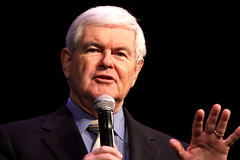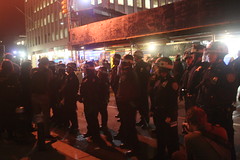My New Filing Technique is Unstoppable: White House Moves To Digitize Records

Good news for proponents of transparency and open government, from Richard Wolf of USA Today; the White House has a plan to digitize the Republic’s filing cabinets:
President Obama is ordering that government records be modernized, with an increased emphasis on digital documents.
The White House claims it’s the most significant step to improve the management of public records since the Truman administration 60 years ago.
“The current federal records management system is based on an outdated approach involving paper and filing cabinets,” Obama said in a statement. “Today’s action will move the process into the digital age so the American public can have access to clear and accurate information about the decisions and actions of the federal government.
The White House predicts that the switch will also save money.
[Photo credit: Thomas Hawk, Creative Commons.]








